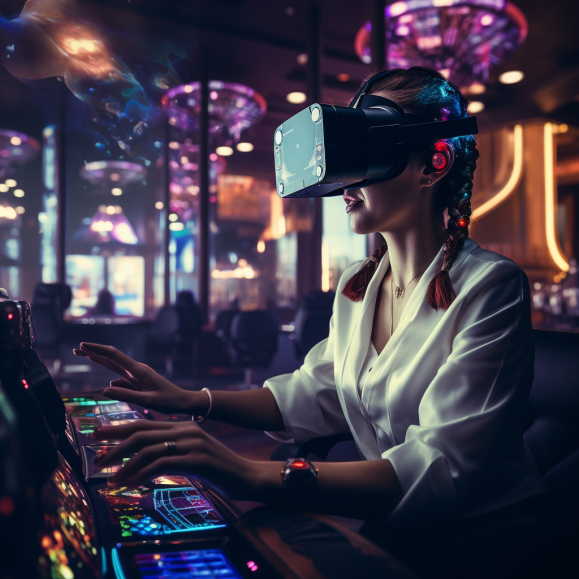The Technological Frontier in Gambling
The evolution of the gambling industry has always been intrinsically linked with technological advancements. From the basic mechanic slot machines of the early 20th century to the online casinos of the 21st, every technological innovation has ushered in a new era for gamblers and businesses alike. Today, at the frontier of this ever-changing landscape, Augmented Reality (AR) and Virtual Reality (VR) are setting the stage for an immersive and revolutionary gambling experience.
From Physical to Digital: The Road So Far
To understand the transformative power of AR and VR, it’s essential to trace back the digital evolution of the gambling industry. In the 1990s, the internet boom led to the proliferation of online casinos, allowing players to wager real money from the comfort of their homes. Soon after, mobile casinos entered the scene, offering games optimized for smartphones and tablets. With each step, the emphasis has consistently been on enhancing convenience and user experience.
The Allure of Augmented Reality
AR, with its ability to superimpose digital information on the real world, holds immense potential for the gambling industry. Imagine walking down a street and seeing virtual signposts pointing to nearby casinos or overlaying a poker table on your living room coffee table and playing a quick game with friends from around the world. Here’s how AR is making inroads:
1. Enhancing Traditional Casinos: By wearing AR glasses, gamblers can experience instant statistics, odds calculations, or even tutorials on casino games, enriching the learning and playing experience.
2. Social AR Gambling: Friends can join in a game of cards or roulette from various geographic locations, all seeing the same augmented game board, making remote gaming a collective experience.
3. Gamified Betting: Imagine watching a live football match and placing bets on real-time events, all visualized through AR glasses. This integration of real-world sports with augmented betting interfaces can redefine sports gambling.
The VR Casino Revolution
Virtual Reality takes immersion a step further than AR by transporting users into fully rendered digital environments. In the realm of gambling, this can translate into:
1. Virtual Casino Resorts: Players can roam expansive casino floors, pick games they want to play, interact with other avatars, or even attend virtual concerts — all from their living rooms.
2. Enhanced Slot Gaming: Traditional online slot games can seem static, but in VR, they transform into interactive adventures. Players can journey through narratives, making slot gaming a more engaging experience.
3. Skill-based Gaming Arenas: VR can host tournaments where players compete in skill-based games, offering a blend of video gaming and gambling.
Challenges and Ethical Considerations
While AR and VR promise to revolutionize gambling, they also bring challenges:
1. Over-immersion: The immersive nature of VR can make it hard for individuals to track time, potentially leading to extended gaming sessions and increased gambling-related harms.
2. Accessibility and Cost: High-quality VR headsets and AR glasses can be expensive, potentially limiting their reach to only a segment of the gambling population.
3. Regulatory Gray Areas: As with any technological advancement in gambling, AR and VR will pose new challenges for regulators. Defining what constitutes a “virtual casino” and ensuring fair play in an augmented space will be crucial.
The Road Ahead: A Blend of Reality and Virtuality
The future of gambling, influenced by AR and VR, is poised to be a blend of physical and digital experiences. Hybrid models might emerge, where traditional casinos use AR and VR to enhance in-house experiences, while purely virtual casinos cater to a global audience seeking a digital escape.
A New Dawn in Gambling
AR and VR are not just adding layers to the gambling experience; they are redefining it. As technology continues to evolve, so will the ways we gamble. These technologies promise to deliver experiences that are more immersive, interactive, and social. Yet, as with all innovations in this industry, striking a balance between entertainment and responsibility will be paramount.
This examination, though extensive, only scratches the surface of the transformative impact AR and VR can have on gambling. As we stand at this technological crossroads, one thing is certain: the world of gambling is on the cusp of a new, exciting era.

